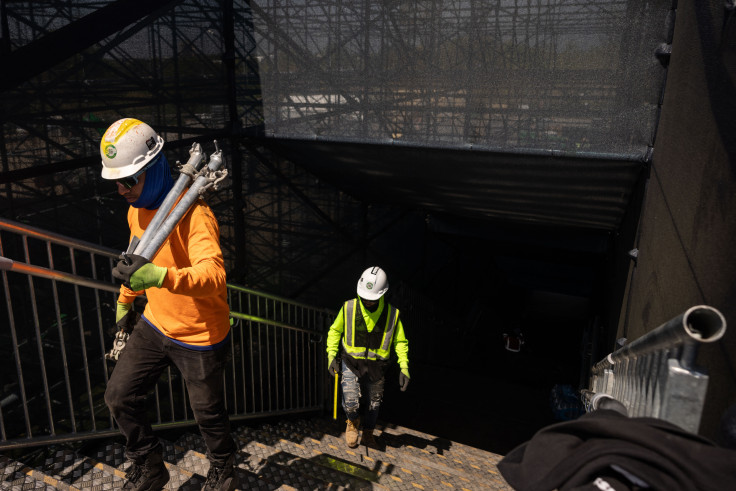
As President-elect Donald Trump prepares to take office, many Texas business leaders are expressing concern over the potential economic consequences of his proposed mass deportations as undocumented workers play a crucial role in several key sectors, such as construction, agriculture, and hospitality.
Texas is home to an estimated 1.4 million undocumented immigrants, making up roughly 8% of the state's workforce. These workers have built skyscrapers, picked crops, and held numerous essential jobs that many U.S. citizens and legal residents are unwilling to take on. Now, with Trump pledging to deport millions of undocumented people, business leaders are left uncertain about the future.
"I don't think any of us know exactly what's coming as far as policy — we've heard all of the rhetoric," said Andrea Coker of the North Texas Commission, a nonprofit promoting regional growth, to The Texas Tribune. "But it's unclear how it will play out."
One anonymous business owner in the Rio Grande Valley told the outlet four of his seven employees are undocumented. Without them, he believes his agriculture import-export business would not survive. "We wouldn't survive and we'll have to close," he said, explaining that he struggles to find U.S. citizens or legal residents willing to do the physically demanding work.
While Trump has emphasized that his administration would prioritize deporting individuals with criminal records, he has also stated that anyone who entered the U.S. illegally is committing a crime. The specifics of the deportation plans remain uncertain, but mass deportations could potentially create significant challenges for Texas industries that rely heavily on undocumented labor.
A 2006 study by the Texas state comptroller found that the absence of undocumented workers would cost the state around $17.7 billion in gross state product. Although the study has not been updated, similar analyses indicate that undocumented immigrants contribute more to the economy than they cost the state.
Jaime Puente of the nonprofit Every Texan highlighted the potential loss of productivity. "We are looking at a significant loss of productivity," he said. Construction, in particular, could be hit hard, as undocumented workers make up a large portion of the labor force in the state's homebuilding industry. The Texas housing market could see higher home prices and rents as a result of fewer homes being built.
The impact could be felt in communities beyond the construction sector. In the Permian Basin, mass deportations could reduce local populations, leading to business closures and the loss of sales tax revenue, according to Virginia Bellew, executive director of the Permian Basin Regional Planning Commission.
Business leaders, such as Stan Marek, owner of a Houston-based construction firm, believe that a more effective solution could involve offering a path to citizenship for undocumented workers, particularly those who arrived as children and are protected under the Deferred Action for Childhood Arrivals (DACA). Marek proposes a similar program for adults to gain legal status, which he believes could address the state's labor shortage and stabilize key industries.
Despite the uncertainty surrounding Trump's immigration policies, many Texans are holding their ground. A 43-year-old man who arrived from Mexico 25 years ago now works as a foreman in Austin's construction industry. With deep roots in Texas, he remains optimistic about the future, despite the fear of potential deportation.
A report by Democrats on the Congressional Joint Economic Committee (JEC), based on data from the Peterson Institute for International Economics, estimates that deporting 8.3 million undocumented immigrants could cut the GDP by 7.4% and reduce employment by 7% by 2028. This might lead to no economic growth during Trump's potential second term.
Another study, conducted by the National Foundation for American Policy, revealed that, by 2052, the only source of labor force growth in the U.S. will come from immigrant workers. In fact, in the last 6 years, immigrants and their children have added 5.4 million workers, resulting in a net increase of over four million in the labor force.
In the case of Latinos specifically, they are impacting the country's GDP to the tune of trillions thanks to their impact in industries such as manufacturing, public administration, accommodation and food services and transportation
Nearly 5 million American families may face profound disruption under a proposed 2024 mass deportation program, according to a report from the Center for Migration Studies (CMS). The report warns that such a large-scale deportation effort could break up families, causing widespread social and economic consequences.
© 2025 Latin Times. All rights reserved. Do not reproduce without permission.











